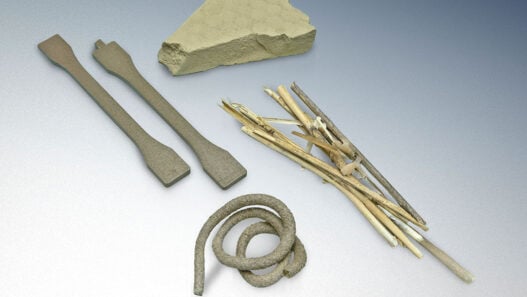The modules feature a wide output adjustment range of, for example, 3.3V +10/-40 percent. For safety, the modules have a 1500V input-to-output isolation rating and feature comprehensive protection against overtemperature, output short circuit, and output overvoltage.
The demand for this type of converter is being driven by designers who, in order to reduce manufacturing complexity and mix surface mount and through-hole assembling processes, are pushing for all components to be surface-mount compatible. This makes manufacturing easier and reduces assembly costs. The amount of energy consumed during manufacturing is also reduced as double handling is avoided.
The PKU-SI is DOSA (Distributed-power Open Standards Alliance) compatible, ensuring footprint compatibility across a wide range of manufacturers and compatibility with all aspects of DOSA. The same board is used for PI and SI versions of PKU, which increases the flexibility and speed of manufacturing and contributes to reduced lead-times.
The module’s high-efficiency results in lower power dissipation, reduced heat build up, and lower power consumption, all contributing to lower total cost of ownership.
The PKU-SI benefits from Ericsson’s market-proven MacroDens modules, of which 40 million have been shipped. With 80 percent of that volume being surface-mount types, and featuring the FIP concept (Floating Inserted Pins), the PKU-SI has been truly designed for manufacturing (DfM), taking into consideration the entire process from manufacturing to final assembly by the customer.
By taking into consideration end-users’ manufacturing constraints from the start, Ericsson’s DfM process has made it possible to develop surface-mount modules that comply with even the most demanding manufacturing processes. The layout of the products has been carefully optimized to facilitate pick-and-place, simplifying manufacturing operations.
The modules’ FIP concept ensures that all the connecting pins remain in place and are aligned during second or third reflow soldering. The pins are also manufactured with very tight tolerances, guaranteeing co-planarity and mechanical accuracy.
Ericsson Power Modules’ FIP concept is based on highly accurately tooled pins that are inserted and aligned during the original assembly process. When a PKU-SI module is assembled on the final board, during lead-free soldering reflow, the pins remain aligned in the plated through-hole of the PKU and self-adjust to guarantee excellent interconnection between the two solder pads. This ensures high reliability and host equipment availability.
Many modules already released by several manufacturers use pins such as box-pins or cylinder-pins that were originally designed for lower-mass modules (such as point-of-load). Although such pins are perfectly suitable for light components (Ericsson also uses box-pins in its PMC point-of-load module), in the case of higher mass modules, if the pins are not mechanically secured in the PCB there is a significant risk the pins may move during assembly and reflow, with consequences ranging from short-circuit to total disconnection. So the assembly advantage of FIP for the final user is very significant, as it guarantees high stability and reliability when assembling heavier surface-mount modules.
PKU-SI is available in molded trays (JEDEC design guide 4.10D standard) and in tape and reel formats. Complying with the IPC/JEDEC standard J-STD-033 (handling, packing, shipping and use of moisture/reflow sensitivity surface-mount devices) inner shipment containers are dry packed in standard moisture-barrier bags.







